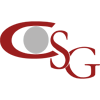The year 11 bilingual Biology class spent a day at the Schülerlabor für Neurobiologie of Tübingen University carrying out experiments supported by university students. The following is a summary of the different experiments.
One vital aspect of neurology is the anatomy and the physiology of the eye, which was observed by the first group. The experiments were conducted to test the field vision and the human perception of the environment, including observing 2D objects through a 3D background (circle in a tunnel experiment) to observe the Ponzo effect and optical illusions. Human vision itself was also tested through various experiments that involved the fovea and peripheral vision with dots and bars through the varying amounts of minutes or arc.
A second aspect in the experiments was motor learning. This group did various experiments playing darts with prism or upside-down glasses or playing computer games in which you had to adapt to changed requirements.
Another group dealt with the activity of the brain in different stages of activation a person can be in. The brain activity was measures with electrodes while confronted with visual stimuli. The resting state was recorded with the eyes closed, normal brain activation included looking at a photo of a sunset and the active state was measured when solving mathematical problems. In a second experiment the aim was to find out if there is a difference in brain activity when looking at female and male faces.
The fourth group carried out experiments with two different fish species that send out electrical signals to their environment. The purpose of this is the communication with other individuals of the same population and the navigation. The impulses were recorded in varying experimental setups (e.g. darkness vs. light, obstacles, influence of magnets etc.).
In the end all groups presented their results to the whole group to inform the classmates. The group’s conclusion: “We enjoyed being able to try out so many devices to study the different aspects of neurobiology and we gained a lot of knowledge doing this.”
